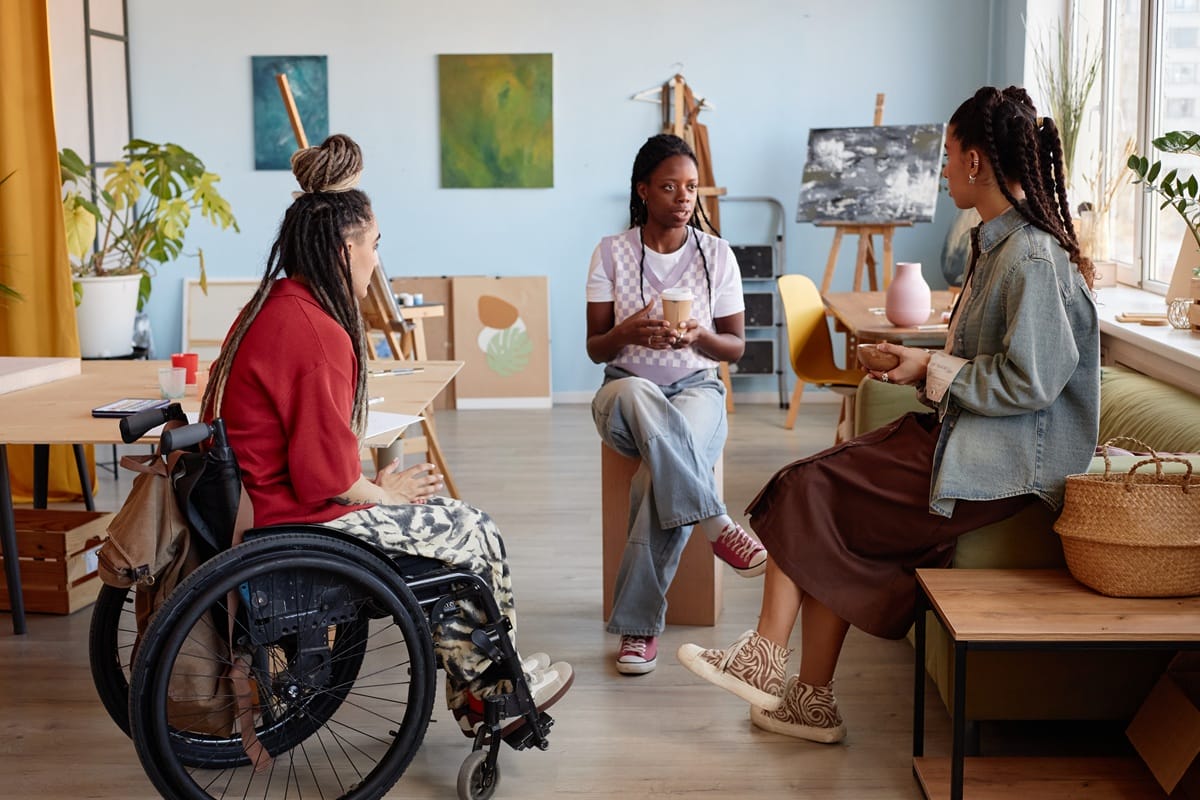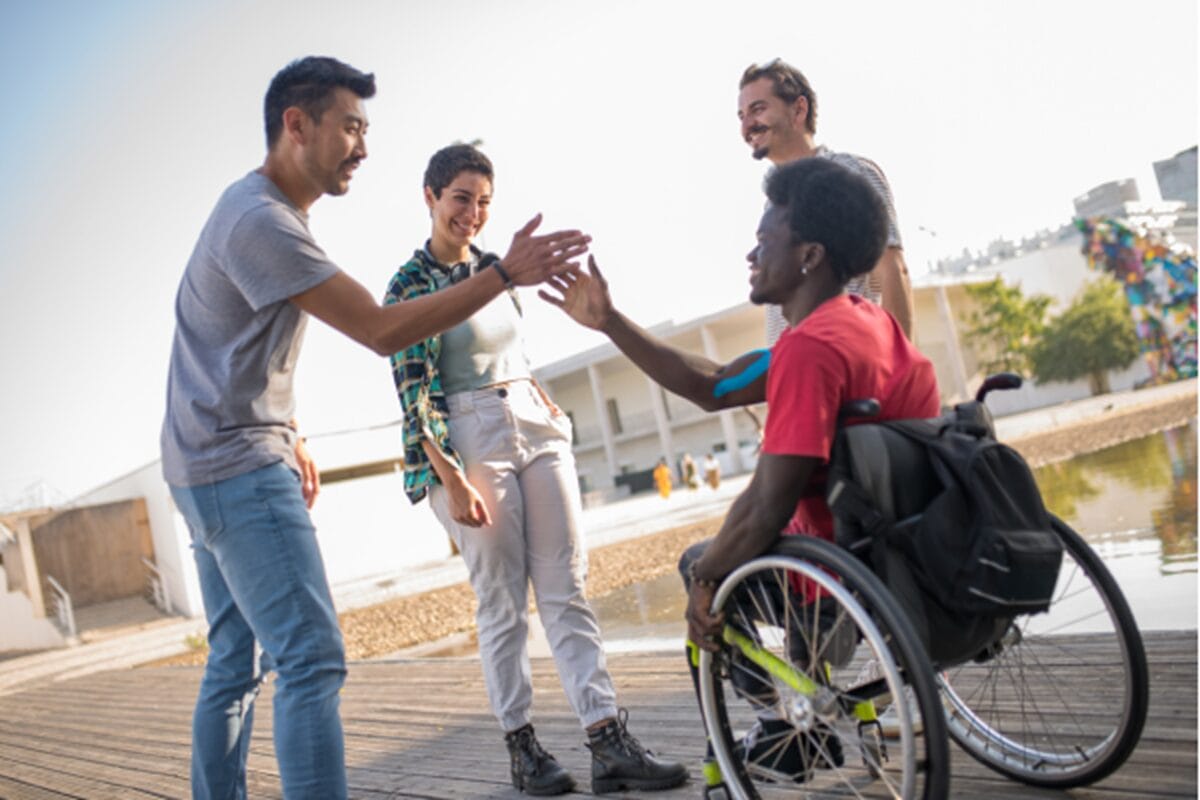What Can Improved Daily Living Funding Be Used For Under the NDIS?
If you’ve started navigating the NDIS, whether for yourself, your child, or someone you care for, you’ve probably come across the term Improved Daily Living. And like many parts of the scheme, it might not be immediately clear what it actually means or how it could support you.
In reality, this part of the NDIS can be a powerful tool. It’s designed to help people build confidence, independence, and practical skills that make everyday life a little easier, and a lot more meaningful.
In this article, we’ll break it down in plain English: what Improved Daily Living funding is, what kinds of supports it may include, and how those supports can help people work towards their own goals, whatever those may be.
So, what is Improved Daily Living funding?
At its core, Improved Daily Living is about helping people learn, grow, and do more for themselves, in ways that make sense for their lives.
It sits under the NDIS Capacity Building category, which focuses on giving people the tools and support to build skills and confidence over time. The services funded here are usually delivered by allied health professionals like occupational therapists, speech pathologists, psychologists, and physiotherapists.
This is known as Improved Daily Living support, and it’s often used to build or maintain daily living skills such as preparing meals, communicating clearly, managing routines, or moving safely in and out of the home.
The aim? To support people in doing more of what matters to them, whether that’s communicating more easily, getting around more independently, or managing day-to-day tasks at home. It’s not about changing who someone is. It’s about supporting them to live life on their terms.
Not every NDIS plan includes this funding, but if your goals line up with the kinds of supports on offer, it may be part of your support budgets.
What kinds of supports might be included?

This funding can cover a wide mix of services, depending on the individual’s needs and goals. Most of these supports are therapy-based and focus on building up everyday skills, step by step.
Some of the most common supports accessed through this category include:
- Occupational Therapy: To help you manage day-to-day tasks, improve routines, or learn how to do things more independently at home or in the community. An OT might work with you on meal planning, personal care, or managing your energy and focus throughout the day. These supports are especially helpful for skill development related to home safety or independent living.
- Speech Pathology: For people of all ages who want to build stronger communication skills, whether that’s using speech, signs, devices, or alternative communication systems. Speech therapists also support people with swallowing difficulties and meal safety.
- Physiotherapy: To increase strength, mobility, flexibility, or balance. Physios can help people manage pain, improve movement, or prevent falls, especially important for people with physical disabilities, chronic conditions, or age-related mobility issues.
- Psychology and counselling: For emotional wellbeing and mental health. These supports may help with managing anxiety or depression, building emotional regulation skills, improving self-esteem, or navigating personal challenges.
- Functional assessments and therapy plans: Help guide what supports you need and how your progress is tracked. These assessments and reports may be used in plan reviews to explain the outcomes you’re working towards.
Some participants may also work with a support worker during or after therapy sessions to reinforce what they’re learning, especially when practising daily living skills in real-life settings like the home, kitchen, or community.
Depending on your goals, you might work with just one type of therapist, or a team that collaborates to offer support across different areas of life.
What does this support look like in real life?

These aren’t just clinical sessions or tick-box programs. When delivered well, these supports are flexible, person-led, and designed to fit into real life.
Here are some examples:
- A teenage participant might work with a psychologist on managing emotions and a speech pathologist on conversation skills, so they can feel more confident making friends and participating in school life.
- A young adult living with a developmental disability might see an occupational therapist weekly to build up independent living skills. Together, they work on budgeting, meal planning, cleaning, and building a routine that supports their goal of moving into their place one day.
- A parent of a child with disability might use Improved Daily Living funding for early intervention supports, like OT and speech therapy, to encourage development during the early years of learning and growth.
- An older adult recovering from illness might access physiotherapy at home to rebuild strength and reduce the risk of falls, helping them stay safe and mobile in familiar surroundings.
- A person with an intellectual disability might work with a behaviour support practitioner to explore new ways to communicate and manage sensory overwhelm in social settings.
In all of these cases, therapy is paired with real-world practice. That’s where assessment training, and sometimes the involvement of a support worker, becomes important, especially when someone is working on transferring therapy goals into daily routines.
There’s no one-size-fits-all approach. These supports are designed to be shaped around the individual, not the other way around.
How do these supports get included in your NDIS plan?
NDIS plans are built around your goals. If you’re working towards becoming more independent, developing new skills, or improving communication or mental health, then supports that help with those goals might be considered reasonable and necessary.
That’s where planning meetings come in.
When you meet with your NDIS planner or Local Area Coordinator, it’s important to talk through what’s important to you, not just in terms of support needs, but the life you want to build. From there, you may be funded for certain therapies under the Improved Daily Living category to help bring those goals to life.
Bringing along assessments and reports, whether from current therapists or previous service providers, can help demonstrate how certain supports are connected to your goals. These documents provide clear evidence of your needs and can guide discussions during plan development or review.
Keep in mind: funding isn’t guaranteed, and it’s not the same for everyone. But finding approved therapies and professionals with NDIS experience can make it easier to navigate your options and prepare for plan discussions.
This is especially important during plan reviews, when funding can be adjusted based on your progress, new goals, or changes in your circumstances.
What if you’re not sure how to use your funding?

That’s incredibly common, and it’s exactly where Support Coordination can make a difference.
Support Coordinators are there to help you get the most from your NDIS plan. They can explain how your funding works, help you find the right providers, and make sure your supports are coordinated in a way that feels manageable and meaningful.
They can also support you during plan reviews by helping gather reports, update your goals, and advocate for the services that align with your current needs.
If you’re not sure where to start, or you feel like you’re not making full use of your plan, having a Support Coordinator on your side can make the whole process feel a lot more manageable.
How St Jude’s can help
At St Jude’s, we offer a full suite of allied health services under the NDIS, including Occupational Therapy, Speech Pathology, Psychology, Counselling and Physiotherapy.
Our team works with people of all ages and backgrounds, providing therapy that fits into real life, whether that’s at home, in the community, at school, or in one of our local clinics.
We don’t believe in cookie-cutter solutions. Our therapists take the time to get to know you, understand your goals, and build a support plan that feels achievable and empowering. That often includes a mix of skill development, therapy, and collaboration with your broader team, including your support workers and coordinators.
We also offer Support Coordination, which means you can access therapy and coordination through one trusted provider, with everything connected and working towards the same outcomes.
Whether you’re new to the NDIS, looking for a fresh start, or just want someone to help guide the way, we’re here when you’re ready.
Ready to take the next step?

If you’ve been wondering what Improved Daily Living funding can be used for under the NDIS, we hope this guide has given you some clarity.
And if you’re still unsure about where to begin, that’s okay, too.
You’re not expected to have all the answers, and you don’t have to figure it out on your own.
You can learn more about the allied health services we offer on our website, or get in touch with our team for a no-pressure conversation about what might be possible.
Sometimes, a simple chat is all it takes to get started.